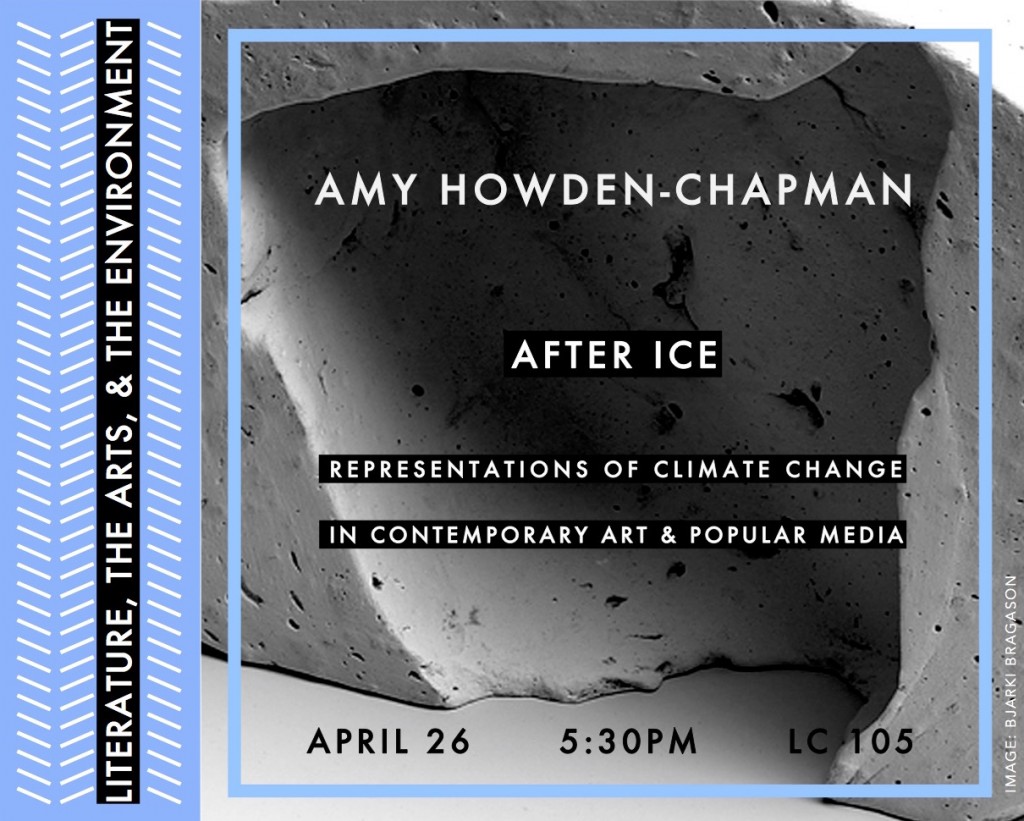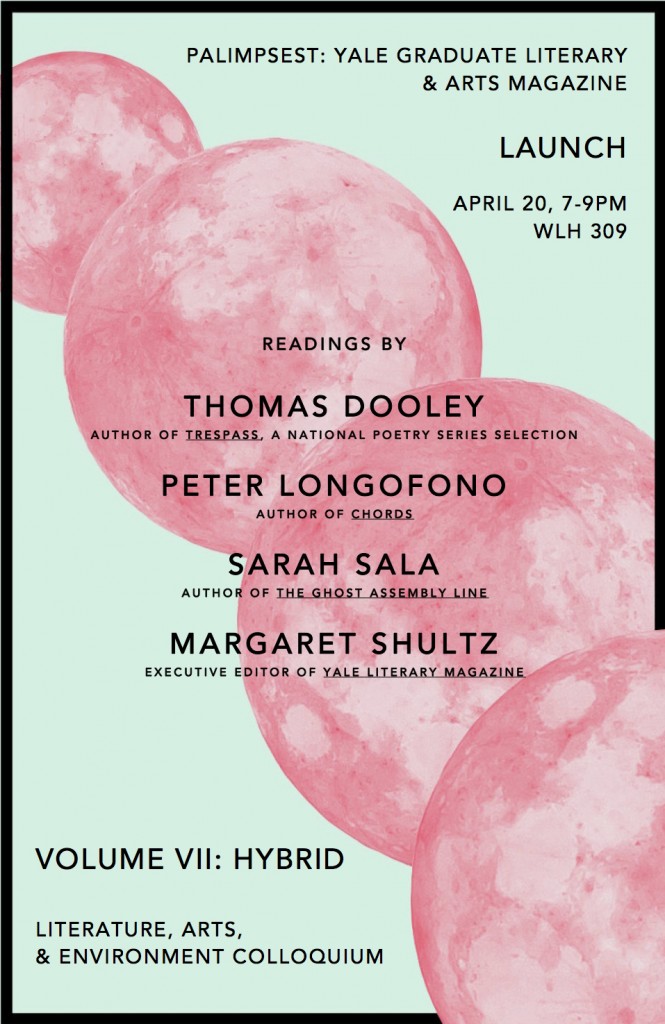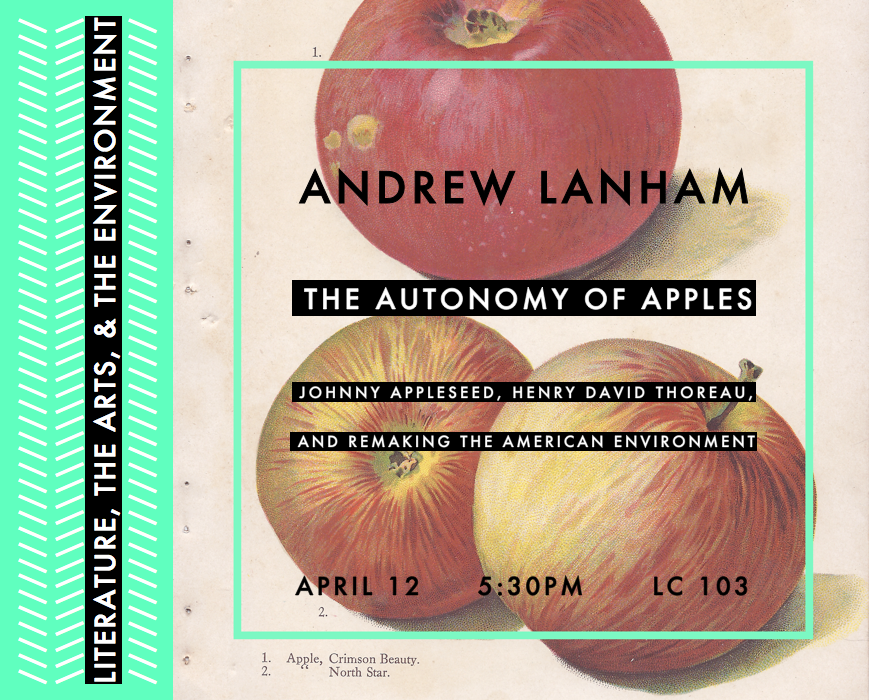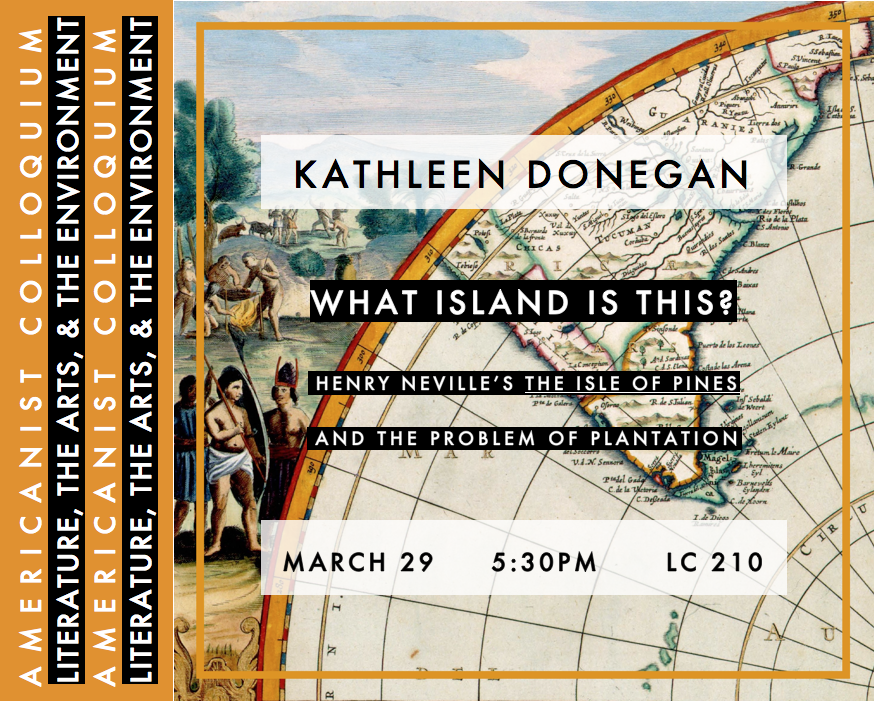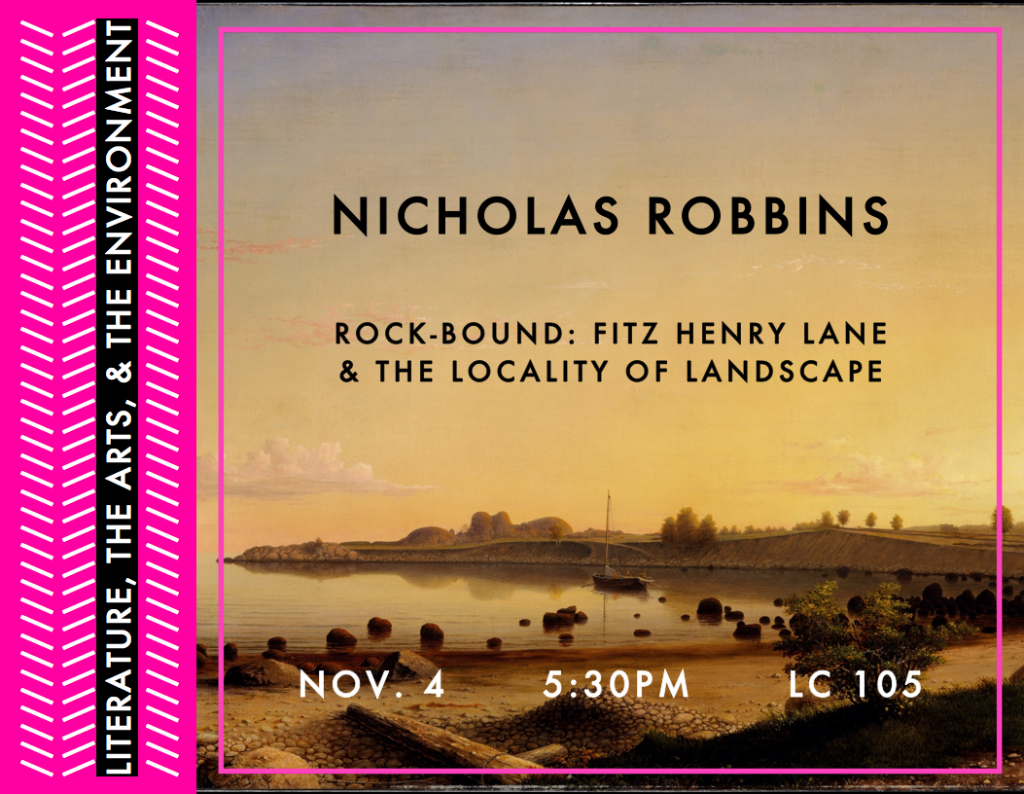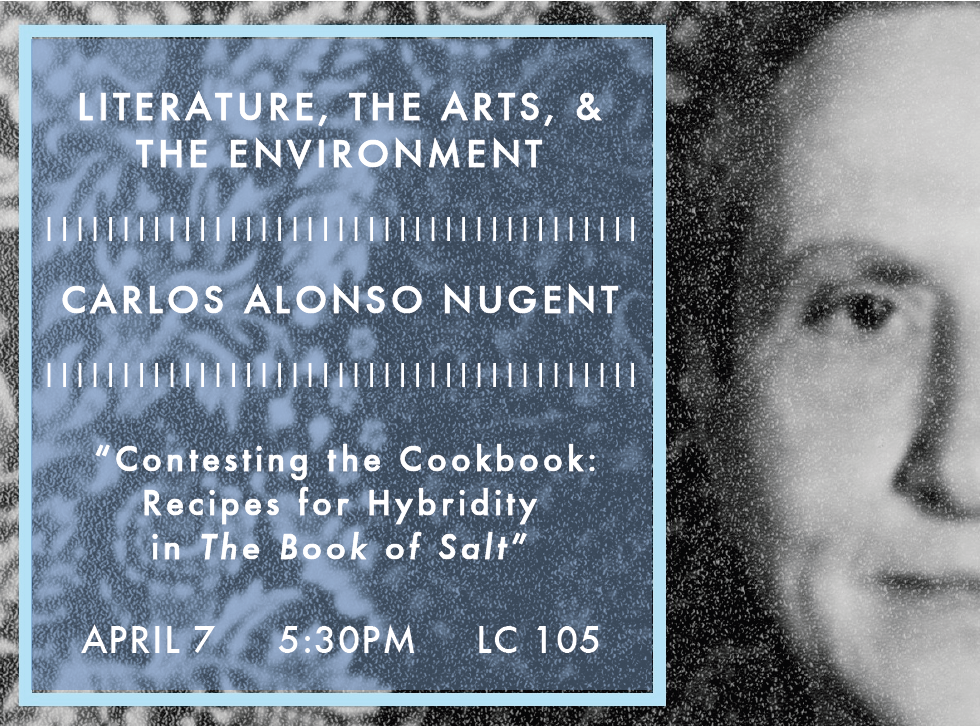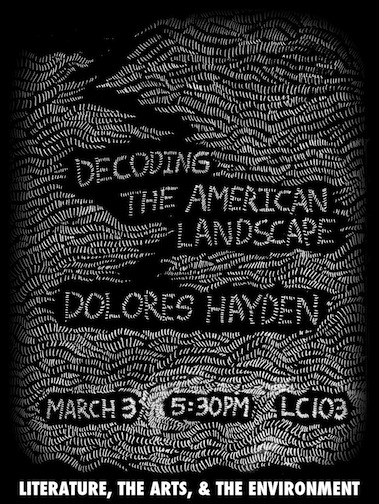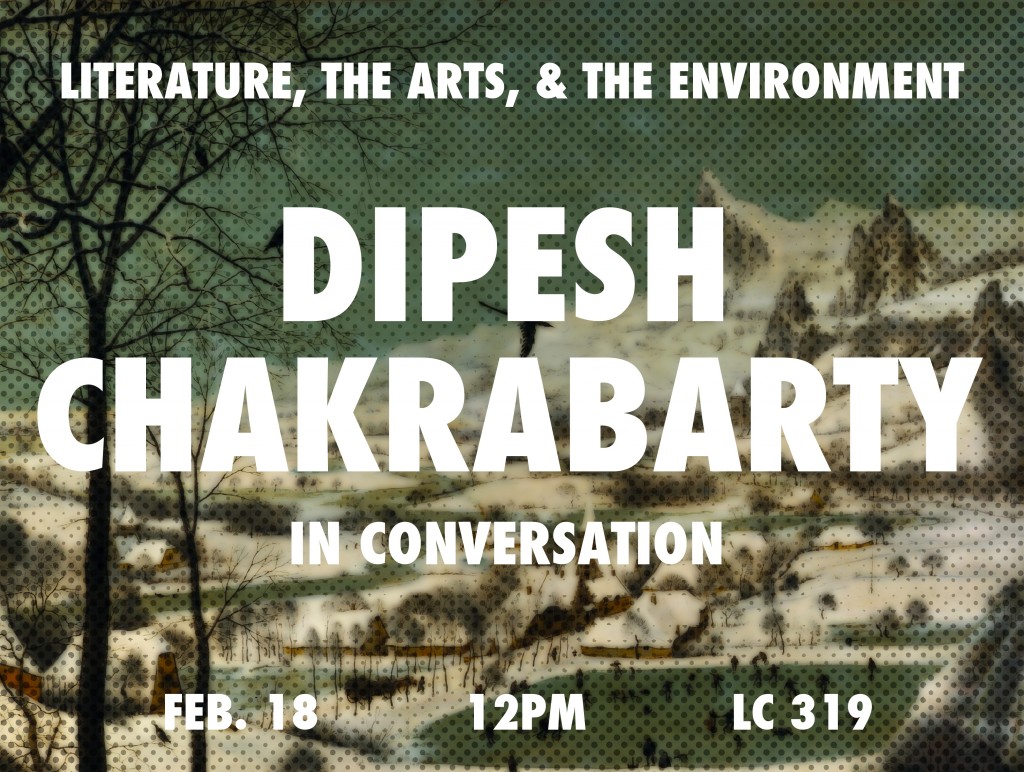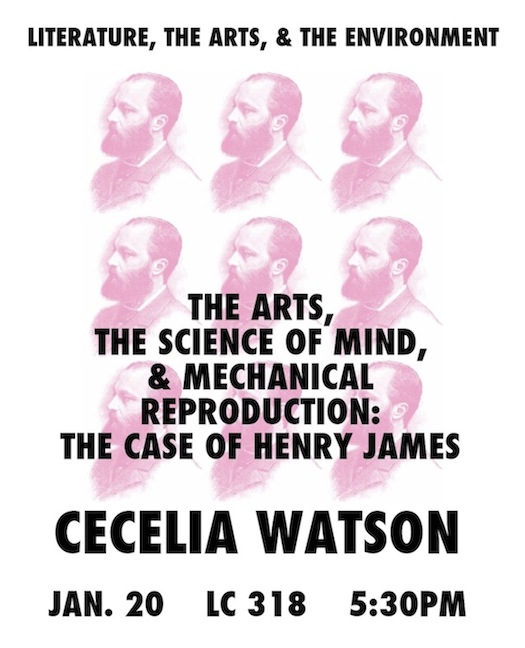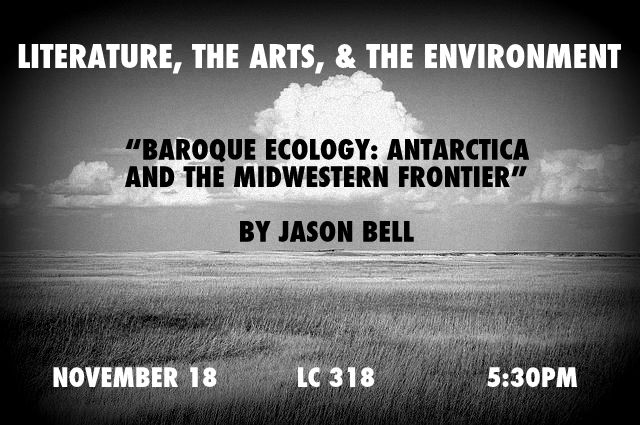2015-2016
Tuesday, April 26, 2016 at 5:30pm in LC 105: Amy Howden-Chapman, “After Ice: Representations of Climate Change in Contemporary Art and Popular Media”
A presentation by artist and writer Amy Howden-Chapman, co-founder of TheDistancePlan.Org, a project that brings together artists, writers, and designers to promote discussion of climate change within the arts. In “After Ice: Representations of Climate Change in Contemporary Art and Popular Media,” an illustrated lecture of her own work and that of her collaborators, Howden-Chapman discusses her practice alongside that of colleagues Amy Balkin and Bjarki Bragasson—artists who have both sought to broaden representation of climate change beyond the melting of polar ice to illustrate the social implications, bureaucratic challenges, and diverse impacts of the climate crisis.
Wednesday, April 20, 2016 at 7:00pm in WLH 309: Launch for Palimpsest: Yale Graduate Literary and Arts Magazine, Volume VII: HYBRID
The launch for the seventh issue of Palimpsest: Yale Graduate Literary and Arts Magazine, which explores the concept of hybridity through poetry, fiction, visual art, architecture, and nonfiction ranging from memoir to the medical humanities. The event featured flash poetry readings by issue contributors Thomas Dooley, Peter Longofono, Sarah Sala, and Margaret Shultz.
Tuesday, April 12, 2016 at 5:30pm in LC 103: Andrew Lanham, “The Autonomy of Apples: Johnny Appleseed, Henry David Thoreau, and Remaking the American Environment”
A work-in-progress presentation by Andrew Lanham, a Ph.D. student in the English department. The paper examines examines anthropogenic changes in ecology and climate in North America during the antebellum period through the story of John Chapman’s (Johnny Appleseed’s) life and Henry David Thoreau’s late engagement with Darwin’s theory of evolution by natural selection. In the paper, Andrew theorizes a discourse of climate change in the early United States and trace its material impacts through land laws, federal bureaucracies like the Post Office and Patent Office, and the development of evolutionary theory.
Tuesday, March 29, 2016 at 5:30pm in LC 210: Kathleen Donegan, “What Island Is This?: Henry Neville’s The Isle of Pines and the Problem of Plantation”
A presentation in collaboration with the Americanist Colloquium by Kathleen Donegan, Associate Professor of English and American Studies at the University of California, Berkeley. Professor Donegan examines Neville’s enormously popular 1668 hoax narrative of a shipwrecked crew who procreate wildly on an undiscovered island. Donegan reads the island fantasy in terms of concurrent developments in England’s Caribbean colonies to explain why the topics of sex, race, population, rebellion, and prodigious production structure the story as they do. These, she argues, were the very problems of plantation, and reading The Isle of Pines as a colonial imaginary rather than as a national allegory serves to reveal widespread cultural fantasies and anxieties surrounding the Caribbean a moment of decisive change in England’s colonial history. This paper occurs at the intersection of two new projects: one on the colonial shipwreck narrative, and the other on gothic fantasies of the early West Indian plantation.
Wednesday, November 4, 2015 at 5:30pm in LC 105: Nicholas Robbins, “Rock-Bound: Fitz Henry Lane & the Locality of Landscape“
A work-in-progress presentation by Nicholas Robbins, a Ph.D. student in the History of Art. The paper examines how Lane’s landscapes, as opposed to the “national landscape” of the Hudson River School, were painstaking commemorations of the local, whose disruptive materiality complicates commonly-accepted readings of his work as visual translations of Emersonian metaphysical unity.
2014-2015
Tuesday, April 7, 2015 at 5:30pm in LC 105: Carlos Alonso Nugent, “Contesting the Cookbook: Recipes for Hybridity in The Book of Salt“
A work-in-progress presentation by Carlos Alonso Nugent, a Ph.D. student in the English department. In his reading of Monique Truong’s Book of Salt, Nugent examines how the cookbook form and national identity connect to transnational environmental issues.
Tuesday, March 3, 2015 at 5:30pm in LC 103: Dolores Hayden, “Decoding the American Landscape”
A poetry reading and talk by Dolores Hayden, Professor of Architecture and American Studies at Yale University. You can find examples of Professor Hayden’s poetry online at Poetry, American Scientist, and the Yale Review.
Wednesday, February 12, 2015 at 12:00pm in LC 319: Dipesh Chakrabarty in Conversation
An informal lunchtime conversation with Dipesh Chakrabarty, Distinguished Professor of History at the University of Chicago, about his recent work. Professor Chakrabarty delivered the Tanner Lectures on Human Values, addressing the topic of “The Human Condition in the Anthropocene.”
Tuesday, January 2o, 2015 at 5:30pm in LC 318: Cecelia Watson, “The Arts, the Science of Mind, & Mechanical Reproduction: The Case of Henry James”
A presentation by Cecelia Watson, ACLS New Faculty Fellow in the Department of Philosophy and Whitney Humanities Center Fellow. You can find more information about Dr. Watson’s current research project—a monograph on Henry James, William James, and John La Farge entitled Double Vision—at her website.
Tuesday, November 18, 2014 at 5:30pm in LC 318: Jason Bell, “Baroque Ecology: Antarctica and the Midwestern Frontier”
A work-in-progress presentation by Jason Bell, a Ph.D. student in the English department. The paper argues for “an ecological homology between Chinese-American-Antarctic trade and the Midwestern prairie through the novels of James Fenimore Cooper, the logbooks of Antarctic sealers, and John Cleves Symmes, Jr.’s hollow earth geography.”
Monday, November 3, 2014 at 5:30pm in LC 319: Louise Glück in Conversation
A public conversation with Pulitzer Prize-winning poet and Yale Professor Louise Glück about her newest collection Faithful and Virtuous Night, which won the 2014 National Book Award for Poetry. Introduction by Brandon Menke, a Ph.D. student in English department.
